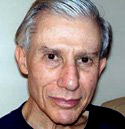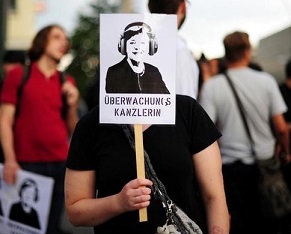Merkel's Germany
On September 23, Der Spiegel headlined "Word From Berlin: Triumph Confirms 'Era of Merkelism."
She "won a stunning victory. Conservatives (achieved) the best result in two decades. Merkel is at the zenith of her power."
Financial Times contributor Wolfgang Munchau headlined "Merkel's almost total political triumph," saying:
"Just a few votes shy of an absolute majority was the best conceivable result Angela Merkel could have had. It was an electoral triumph of the kind that are extremely rare in German politics. She has achieved all her electoral goals. She will stay in power - of that there was really never any doubt. But she also secured her other goal - to make it impossible for the three parties of the left to form a coalition against her during the next parliamentary term."
Germany's so called left is as pro-business/anti-populist as right of center parties. Munchau didn't explain.
"The CDU will always have a choice of coalition partners," (he said.) "While (he) disagree(s) with almost all her economic policies, (he) cannot hide (his) admiration for her political ruthlessness."
German newspaper Die Tageszeitung calls her "the worst chancellor in the country's post-war history." She's that and then some. Retaining her "is bad news for Europe." According to Berliner Zeitung, major domestic issues have been neglected. "Things can't stay as they are for another four years." Expect worse ahead, not better.
She's more than chancellor and party leader. She heads hard right German politics. She accomplished what no previous German leader achieved on either side of the aisle. She won a third term. She's Germany's longest serving leader since Helmut Kohl's 16-year tenure. He was chancellor from October 1982 - October 1998.
Merkel's triumph "puts her on a similar footing with Christian Democratic Union (CDU) heavyweights like Konrad Adenauer and Helmut Kohl, but she won't have much time to savor it," said Der Spiegel.
She won 41.5 of Germany's electorate. She faces tough coalition talks to form a new government. Her current Free Democratic Party (FDP) partner suffered a humiliating defeat. It lost two-thirds of its supporters. It's excluded from Bundestag participation. It failed to clear the 5% hurdle to do so. It's the first time for the party in post-WW II history. It's a major hard right setback.
Merkel has one of two choices. Forming a new government requires doing so either with the Social Democratic Party (SPD) or Greens. Ordinary Germans lose out either way. The five significant parties resemble America's Republicans and Democrats. Rhetoric alone separates them. Policies they support are largely similar. They're pro-business. They're anti-populist. They prioritize austerity. They're waging war on ordinary Germans. They support Obama's imperial agenda. They have their own delusions of grandeur. They endorse war. They abhor peace. They oppose the interests of most Germans.
Merkelism resembles Thatcherism. Thatcher launched a corporatist revolution. Britain became a cutthroat capitalist laboratory. She represented Chicago School fundamentalism writ large. She believed markets work best unfettered of rules, regulations, onerous taxes, trade barriers, and human interference. The best government is none at all, she believed. Whatever it can do, business does better so let it. Public wealth should be in private hands. Profit-making should be unrestrained. Merkel is her German equivalent. Germans have themselves to blame for reelecting her.
In December 1989, her political career began. She joined East Germany's Democratic Awakening (DA). She became its press spokesperson. In August 1990, DA was incorporated into East Germany's Christian Democratic Union (CDU). After October's reunification, it became part of West Germany's CDU. Merkel's job disappeared. It didn't matter. In December 1990 elections, CDU candidates prevailed. In January 1991, Merkel was appointed minister for women and youth. Party head Helmut Kohl became her mentor. She called him the "father of German unity." She allied with hard right party conservatives. In 1994 elections, Kohl's government retained power. Merkel was promoted to head the environment ministry. She supported nuclear industry priorities. She endorsed extending the life of aging facilities. In 1998, Social Democrats and Greens gained power. Merkel lost her ministerial seat. She advanced in CDU ranks. In November, she became general secretary. Kohl was held responsible for defeat. Internal tensions surfaced. Merkel took full advantage. She wanted Kohl eliminated. She wanted his successor Wolfgang Schaeuble out of the way. He was "honorary president."
She distanced herself from both leaders. She did so in a Frankfurter Allgemeine Zeitung commentary. Her former mentor became adversary. She presented herself as the party official most able to clear out the "Kohl system." She did so to elevate herself to party leadership.
In early 2000, Schaeuble resigned. He did so after damning information surfaced. He accepted a suitcase full of Deutsche Marks.
Note: on January 1, 1999, euros became Germany's official currency. Usage began in non-physical form. It included traveller's checks, electronic transfers, and other banking transactions. Deutsche Marks and coins continued to be used until January 1, 2002. Changeover to euros lasted until February 28. The official date on which national currencies stopped being legal tender varied by Eurozone member. Germany dropped its national currency first. At the same time, it continued being accepted by national central banks for several years or longer. Before the switchover to euros, it was second only to dollars as a major international currency.
In early 2000, Kohl's resignation followed Schaeuble's. Merkel prepared for party leadership. She was elected party chairwoman. She distanced herself from Kohl. He's often called the "last social democrat." He refrained from major social spending cuts. He did so fearing popular opposition.
Merkel set her own course. She had major cuts in mind. She prioritizes business-friendly policies. She wants Germany's welfare state traditions abolished.
In 2002 elections, Edmund Stoiber defeated her. He was Minister President of Bavaria and Christian Social Union (CSU) Chairman.
In September 2005 federal elections, she won her first term as chancellor. On November 22, she assumed office. On September 22, she won a third term.
It's a long time from now to September 2017. It remains to be seen if she'll win a fourth. Given the fragility of global economies, odds are it'll be three terms and out.
Germans may regret ever electing her. Throughout her career, she's been pro-business, anti-democratic, and anti-populist. She's aligned with hard right CDU elements. She spurns popular interests. She represents politics of the rich, well born and powerful. She's indifferent to public need. She's against what most Germans support. She intends more austerity harshness. She favors redistributing wealth to rich elites already with too much. She wants wages unchanged or cut. She wants social Germany destroyed. She wants ordinary Germans responsible for their own well-being. She wants "market forces" "unleash(ed)" to run things. She favors doing so at the expense of fairness. Profits matter more than people needs, she believes. Expect most Germans to face four more tough years ahead. Expect other Eurozone populations to bear her extremism. Given troubled world economies likely to worsen, expect harder than hard times to follow.
___________________________________________________________________________________

Stephen Lendman lives in Chicago. He has devoted his time and efforts to progressive causes and organizations, all involved in working for a more humane and just world for all people everywhere, but especially for the most needy, disadvantaged and oppressed. His efforts since summer 2005 have included writing on a broad range of vital topics ranging from war and peace; social, economic and political equity for all; and justice for all the oppressed peoples of the world like the long-suffering people of Haiti and the Palestinians. He also co-hosts The Global Research News Hour, gives occasional public talks, and appears frequently on radio and at times television. He is a Research Associate of the Centre for Research on Globalization. Also visit his blog and listen to The Lendman News Hour on RepublicBroadcasting.org Monday - Friday at 10AM US Central time for cutting-edge discussions with distinguished guests on world and national issues. All programs are archived for easy listening. His new book "How Wall Street Fleeces America: Privatized Banking, Government Collusion and Class War" can be ordered HERE. He can be reached at lendmanstephen@sbcglobal.net.
___________________________________________________________________________________
Photo: © picture-alliance/dpa. URL: http://www.a-w-i-p.com/index.php/2013/09/24/merkel-s-germany

























